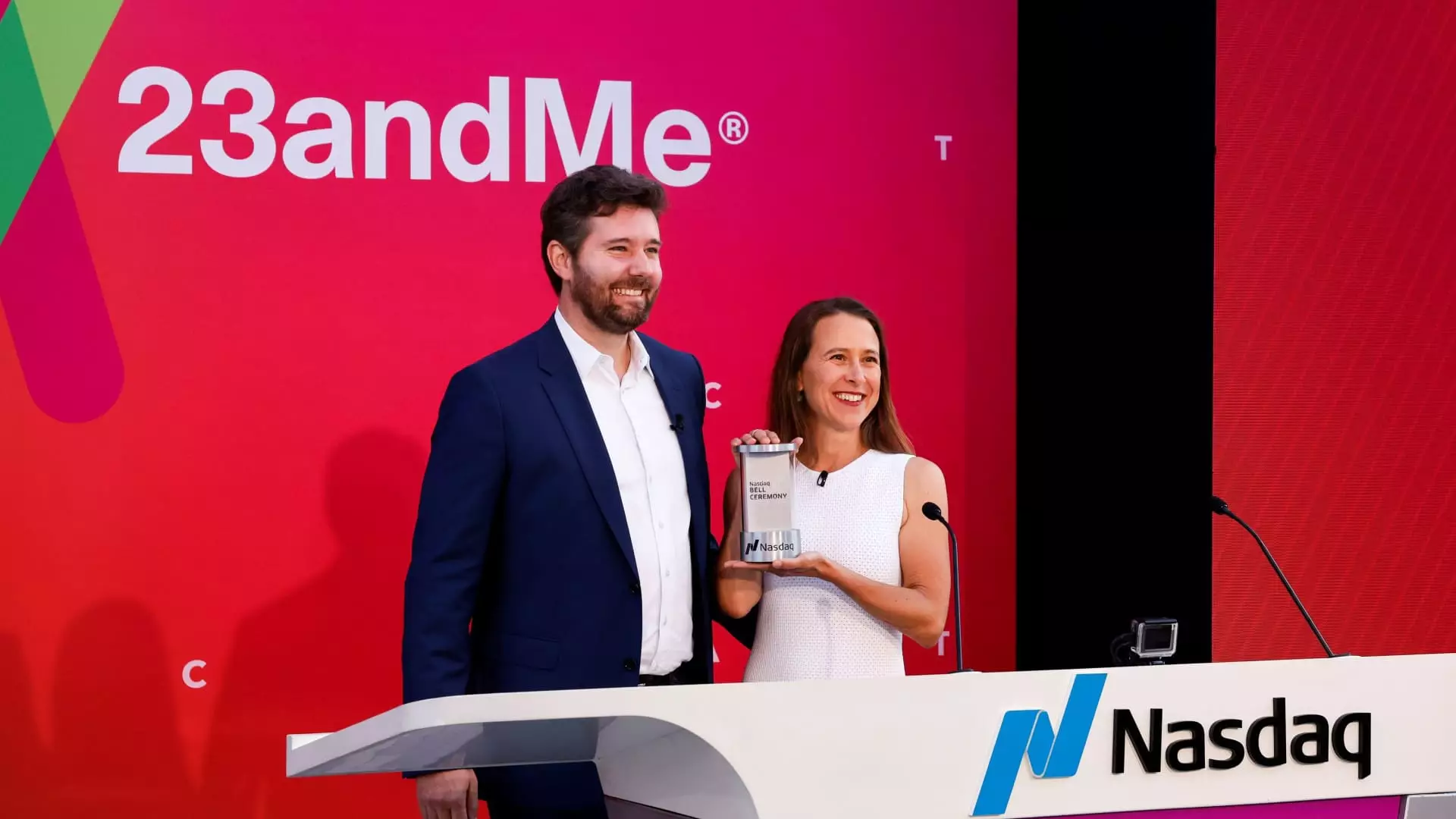The story of 23andMe is a compelling narrative that underscores the volatility of the biotech and direct-to-consumer markets. Founded in 2006 by Anne Wojcicki, Linda Avey, and Paul Cusenza, the company aimed to democratize genetic testing, making it accessible and understandable to the average person. At its peak, 23andMe was valued at $6 billion, but a cascade of unfortunate events has led to a staggering 98% decline in its market worth and questions about its future viability on the Nasdaq.
23andMe burst onto the scene with a revolutionary approach to genetic testing. By eliminating intermediaries and selling directly to consumers, the company enabled individuals to explore their ancestry and genetic predispositions without the hefty price tag traditionally associated with such services. This direct-to-consumer model was further bolstered by high-profile endorsements, which lent credibility and visibility to its genetic testing kits. Unlike competitors such as Ancestry.com, 23andMe positioned itself not merely as a service for personal insight but as a platform for pharmaceutical collaboration, claiming that its extensive genetic database could fuel drug discoveries and innovations.
Despite the evident ambitions and a bold vision, these aspirations proved premature. The company’s initial public offering (IPO) in 2021 catapulted its market value to an estimated $3.5 billion, yet that value soon became precarious. Wojcicki’s visions of transforming the drug discovery landscape would waver in the face of mounting economic challenges and changing consumer behavior.
In the world of startups, initial exuberance can often cloud judgment regarding long-term sustainability. As interest rates climbed and economic conditions tightened, 23andMe grappled with declining sales. The introduction of a premium subscription model in 2020—a strategy intended to stabilize revenue in light of waning direct sales—ultimately fell flat. The numbers tell a harrowing story; the company incurred a colossal net loss of $312 million in the fiscal year 2023. By September of that same year, its shares fell below a dollar, triggering alarms about its impending delisting from Nasdaq.
Contrary to Wojcicki’s previous proclamation regarding explosive growth potential, 23andMe’s trajectory began to resemble more of a cautionary tale. Struggling to adapt to the evolving market landscape, the once-celebrated biotechnology firm found itself ensnared in a web of financial distress and diminished consumer interest.
Compounding its problems, the company faced heightened scrutiny regarding the security and privacy of its genetic database. In a catastrophic breach in October 2023, hackers infiltrated the personal information of almost 7 million customers, intensifying public distrust. As societal concerns about data privacy evolve, 23andMe’s promise to uphold stringent privacy policies is put to the test, particularly amidst cybersecurity vulnerabilities.
The company also faced internal strife. The resignation of its independent board members in September 2023 signaled deeper governance issues. Their departure revealed tensions concerning Wojcicki’s strategic direction for the future, sparking ambiguity around the company’s mission and objectives. Following a rejected proposal to take the company private, the board’s dissatisfaction with Wojcicki’s leadership style became all the more transparent.
As 23andMe hovers on the precipice of potential delisting, the futures of both its business model and its leadership are uncertain. With a critical deadline looming in November to stabilize its share price and appoint new board members, the challenge ahead is formidable. Wojcicki’s dreams of transforming the biotech landscape seem increasingly distant as the company grapples with both internal conflicts and external pressures.
The saga of 23andMe serves as a poignant reminder of how rapidly fortunes can shift in the world of startups. A tale that began with innovation and potential has sadly become emblematic of the pitfalls that can arise from overambition, poor governance, and the ever-looming specter of consumer privacy concerns. The road ahead for 23andMe is fraught with challenges, but it also presents a pivotal opportunity for reflection and rebirth—if the company can harness the lessons learned from its turbulent journey.

